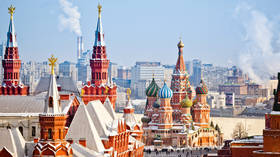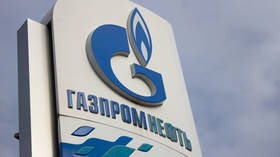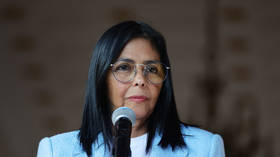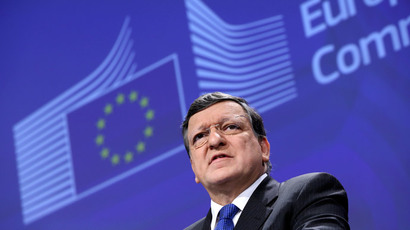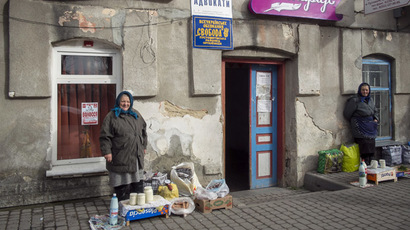IMF unlocks up to $18 bn for Ukraine’s shattered economy
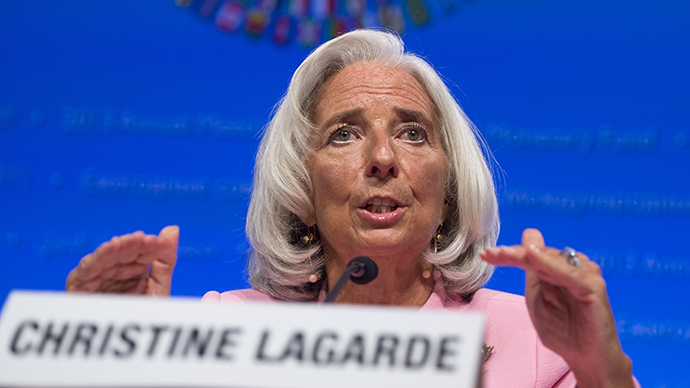
The International Monetary Fund has agreed to grant Ukraine between $14 billion and $18 billion to help the country avoid a default. The package includes a 50 percent rise in the cost of energy to Ukrainian homes.
The IMF promised to grant Kiev the lifeline over the next two years, after finishing its mission in Ukraine on Wednesday. Overall support from the broader international community will stand at $27 billion over the period, the IMF statement said.
“The agreement reached with the authorities is subject to approval by IMF Management and the Executive Board. Consideration by the Executive Board is expected in April, following the authorities’ adoption of a strong and comprehensive package of prior actions aiming to stabilize the economy and create conditions for sustained growth," the document specified.
The money will help to stabilize Ukraine's economy and compensate for the damage incurred by four months of unrest across the country.
However, the IMF funds come with stringent terms; it is asking for a number of economic reforms particularly in energy.
“Energy sector reform will focus on reducing this sector’s fiscal drag, while attracting new investment and enhancing efficiency. A key step is the commitment to step by step energy reform to move retail gas and heating tariffs to full cost recovery, along with early action towards that goal,” the IMF said.
The IMF promised the energy reform “will be accompanied by scaled up social protection to mitigate the impact on the most vulnerable. Over time, the program will focus also on improving the transparency of Naftogaz’s accounts and restructuring of the company to reduce its costs and raise efficiency,” the IMF said.
On Wednesday Ukraine's coup-appointed leaders agreed to unpopular IMF conditions to increase domestic gas prices 50 percent from May 1. For a long time the IMF has been asking Kiev to cut its energy subsidies which, it says, cost 7.5 percent of Ukraine's GDP in 2012.
From April 1 Ukraine could start paying as much as $500 per 1,000 cubic metres for Russian gas, which compares to the discounted $268.5 it pays now. Earlier in the month President Putin said Gazprom will stop providing Ukraine with a 33 percent gas discount, as the country’s Naftogaz was about $2 billion in debt. Prime Minister Medvedev said the price of Russian gas would go up another $100 should Russia break the Kharkov agreement, which gave Kiev a gas discount in exchange for allowing the Russian Black Sea fleet to use the base in Sevastopol.
The IMF conditions could turn out tough for Ukraine, and “the government needs to pay special attention to compensation mechanisms,” as Olena Bilan, an economist at Dragon Capital, warned earlier in an interview with Bloomberg. “A sharp drop in purchasing power may fuel the ongoing instability in eastern Ukrainian regions.”

Money and Ukraine
The European Commission proposed a 11 billion euro ($15 billion) package for Ukraine three weeks ago, saying it’ll unlock the funds once Ukraine signs a deal with the IMF.
“The International Monetary Fund has a central role leading the international effort to support Ukrainian reform, lessening Ukraine's economic vulnerabilities, and better integrating the country as a market economy in the multilateral system,”said a G7 communiqué issued after a meeting of world leaders in The Hague.
“IMF support will be critical in unlocking additional assistance from the World Bank, other international financial institutions, the EU, and bilateral sources,” the document said.
The IMF has 188 countries as members, and promotes international economic cooperation. It collects contributions from each country, known as quotas, that are used for loans to nations facing difficulties. As the global financial crisis began to grow in 2010, the IMF proposed doubling quotas, which would provide a pot of $720 billion. The size of a quota equates to a country’s voting power in IMF decision making, as well as its borrowing capabilities.
So far, the US, the IMF biggest and most powerful member, is blocking reform.
On Tuesday Senate Democrats dropped IMF reforms from the Ukraine aid package, which is now expected to be passed on Thursday. The aid package includes sanctions against Russia, as well as $1 billion to Ukraine in loan guarantees and another $150 million in direct assistance.
The IMF reform would have enlarged the loan package for Ukraine, but the US politicians insisted they needed to react quickly in a current dispute over Crimea.
Japan’s Prime Minister Shinzo Abe also said Monday the country would give about $1.5 billion to Ukraine in a form of loans and grants. Japan specified the money will help economic reform, as well improve housing and sanitary conditions in Kiev.
So far, Russia has been the only country that has effectively provided money to Ukraine. In the end of last year Moscow bought Ukrainian bonds worth $3 billion, which was part of a broader $15 billion deal signed in December.
Ukraine’s economy is expected to slide 3 percent in 2014, according to the country’s Finance Minister Oleksandr Shlapak. The hryvnia has lost 24.7 percent against the dollar this year, which has made it the worst performing currency among more than 170 surveyed by Bloomberg.
Ukraine’s public debt stands at 40.5 percent of GDP. This summer a debt repayment of $6 billion, or the equivalent to about a third of the economy, is due, the Central Bank says.
In February estimates by Ukraine’s Finance Minister showed the country would need $35 billion in foreign assistance over the next two years.


